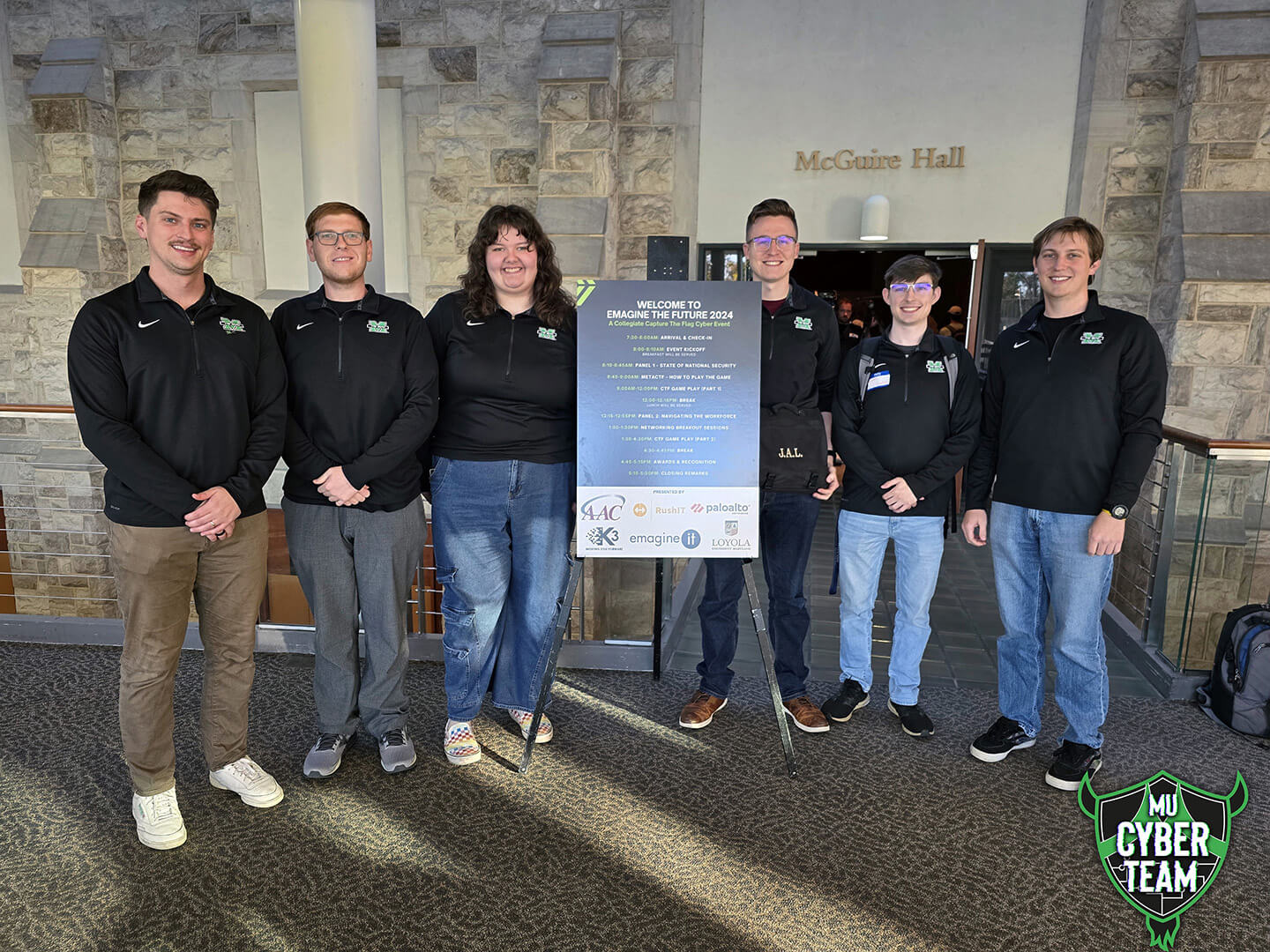
Marshall students Abrianna Angus, Adam Whitehair, Zander Lambert, Noah Quesenberry and Jacob Lauffer competed, under the leadership of faculty advisor John McFee. Sponsored by the Institute for Cyber Security, the team’s participation in this event reflects Marshall University’s commitment to providing students with hands-on experiences that develop both technical skills and professional connections in the cybersecurity field, McFee said. Participating in Emagine The Future 2024 provided Marshall cybersecurity team with invaluable experience that bridged academic learning and real-world cybersecurity practice, he said.
“This challenging, six-hour competition tested their knowledge and skills across various cybersecurity domains, including Reverse Engineering, Open Source Intelligence, Network Analysis and Digital Forensics,” he said. “The experience not only strengthened their practical skills but also encouraged collaboration and critical thinking under pressure, preparing them for future careers in a fast-evolving field.
“Alongside the intense Capture the Flag (CTF) competition, the students also attended two high-impact panels hosted by industry and national security leaders,” he said. “These panels addressed critical issues in cybersecurity, including advancements in Artificial Intelligence, Machine Learning, data strategies, and the evolving threat landscape, offering the students unique insights into the latest developments shaping the field.”
Through this experience, the students were able to connect with industry experts, learn about the strategic directions and challenges in national security, and build professional networks that could support their career paths, McFee said.
“Exposure to both the technical competition and the thought leadership panels not only enhanced their practical skills but also broadened their understanding of cybersecurity’s impact on national and global scales,” he said.
To learn more about cybersecurity programs at Marshall, visit www.marshall.edu/cyber.
